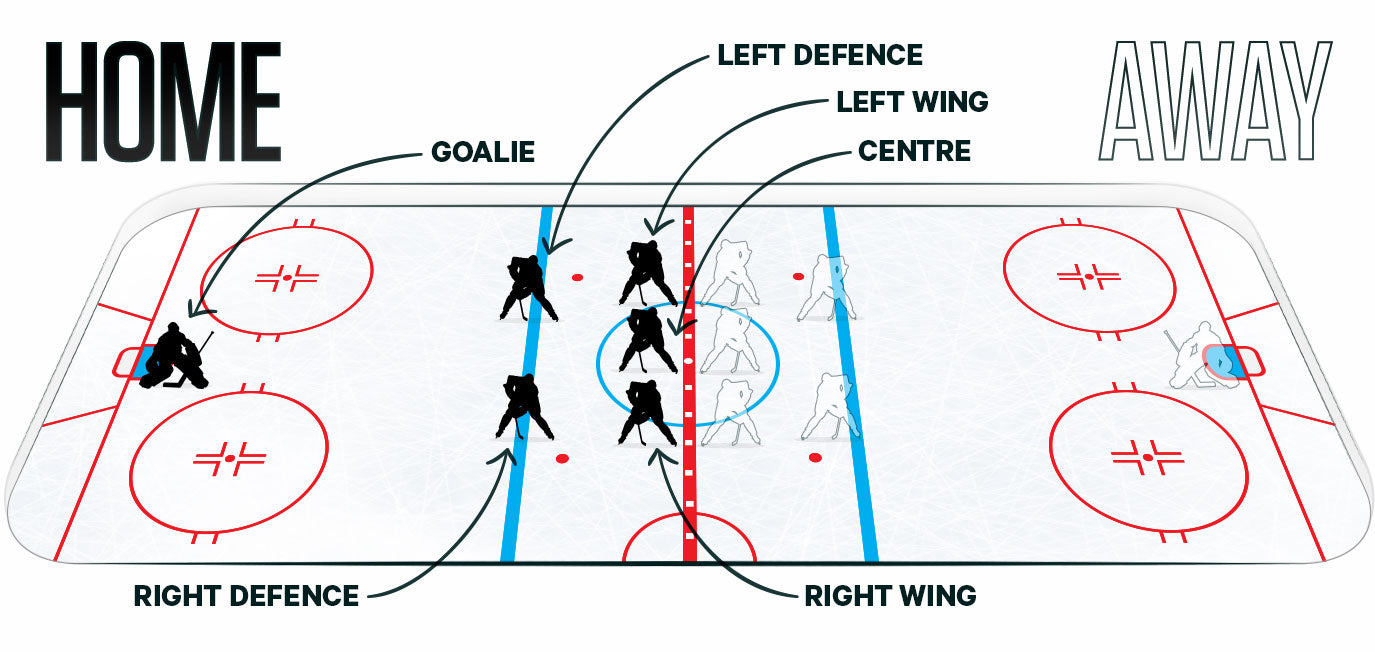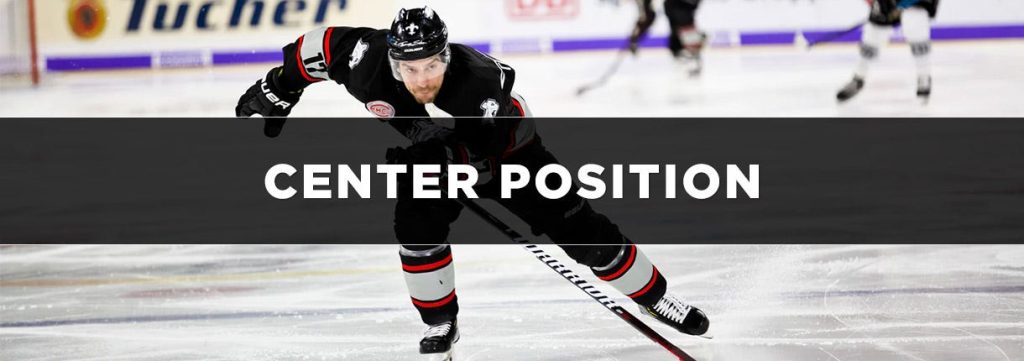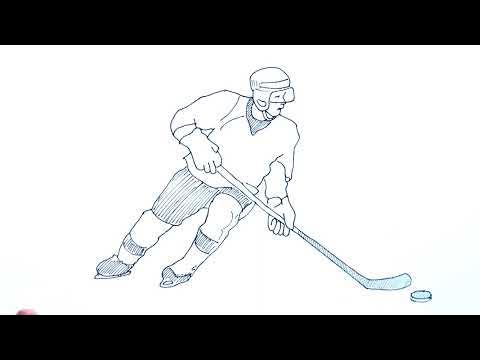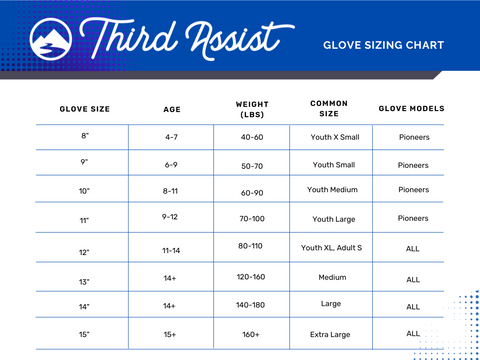Playing center in ice hockey is both challenging and rewarding. It requires skill, strategy, and teamwork.
The center position is vital in ice hockey. This player is often the team’s backbone, connecting defense and offense. Centers must excel in face-offs, passing, and reading the game. They need to be fast, smart, and skilled. Their role is demanding but offers great rewards.
In this guide, we’ll explore how to play center effectively. We’ll cover key responsibilities, essential skills, and tips for success. Whether you’re new to the game or seeking to improve, this information will help you thrive as a center. Get ready to elevate your game and make a difference on the ice.

Credit: beerleaguetips.com
Role Of The Center
The center is a crucial player in ice hockey. This position demands versatility, agility, and awareness. Centers are often seen as the backbone of the team, contributing to both offense and defense. Their responsibilities span across various aspects of the game, making their role dynamic and essential.
Positioning
Positioning is key for centers. They must be able to read the game and move quickly. Centers start in the faceoff circle, aiming to win the puck. Once the game is in motion, they need to anticipate plays and be in the right spot.
Centers often skate in the middle of the ice. This gives them a good view of both ends. They help in defending their own zone and contribute to attacking plays. Good positioning helps centers support their teammates and control the game flow.
Responsibilities
The center’s responsibilities are diverse. They need to excel in faceoffs. Winning faceoffs can set the tone for the game. Centers also play a big role in passing and creating scoring opportunities. They are often the playmakers, setting up goals for wingers.
Defensively, centers need to backcheck and help their defensemen. They must be alert and ready to disrupt the opponent’s plays. Effective communication with teammates is vital. Centers must be vocal and guide their team on the ice.
Here is a summary of a center’s key responsibilities:
- Winning faceoffs
- Creating scoring chances
- Supporting defense
- Passing and playmaking
- Communicating with teammates

Credit: www.reddit.com
Skating Techniques
Skating techniques are essential for a center in ice hockey. A skilled center must be fast, agile, and have excellent control on the ice. Mastering these techniques can make a significant difference in performance. Let’s dive into the key aspects of skating techniques.
Speed And Agility
Speed and agility are crucial for a center. These skills help in quick transitions, both offensively and defensively. To improve speed:
- Perform short sprints during practice.
- Work on explosive starts.
- Increase stride length and frequency.
Agility allows a center to dodge opponents and maintain control. Enhance agility through:
- Quick direction changes.
- Practicing tight turns.
- Using agility ladders off the ice.
Edge Work
Edge work is about controlling the inside and outside edges of the skates. This helps in maintaining balance and making sharp turns. Focus on:
| Edge Type | Technique |
|---|---|
| Inside Edge | Lean slightly inward while turning. |
| Outside Edge | Lean outward to gain speed on turns. |
Practicing edge work improves stability. It also helps in maintaining speed through curves. Use cones to create a slalom course. This will help in practicing edge control effectively.
Faceoff Strategies
The faceoff is a critical moment in ice hockey that can set the tone for an entire play. As a center, mastering faceoff strategies will give your team a significant advantage. Below, we’ll discuss essential techniques to help you win the faceoff and counter your opponent’s moves effectively.
Winning Techniques
Winning a faceoff requires a combination of speed, strength, and strategy. Here are some key techniques to consider:
- Timing: Watch the referee’s hand and anticipate the drop. Quick reaction time is crucial.
- Grip: Hold your stick firmly but not too tight. A flexible grip allows quick movement.
- Body Position: Stay low and balanced. Use your legs to generate power and maintain stability.
- Stick Position: Keep your stick close to the ice. A low stick helps you get under your opponent’s stick.
Practicing these techniques will improve your chances of winning the faceoff. Consistency and repetition are key.
Counter Tactics
Sometimes, your opponent may have the upper hand. Knowing how to counter their strategies can turn the tide in your favor.
- Anticipate Moves: Study your opponent’s habits. Adjust your stance and grip based on their tendencies.
- Use Your Body: If you can’t win with your stick, use your body to block or disrupt the opponent.
- Switch Hands: If you’re facing a tough opponent, switch to a backhand grip for a surprise advantage.
- Communicate: Coordinate with your wingers. A well-timed assist from a teammate can make all the difference.
By combining these counter tactics with your winning techniques, you’ll be well-prepared for any faceoff scenario. Remember, the key to success is practice and adaptation.
Offensive Skills
Playing center in ice hockey requires a unique blend of offensive skills. This position is crucial in generating scoring opportunities and maintaining possession. Here, we will focus on two key offensive skills: puck handling and shooting accuracy.
Puck Handling
Effective puck handling is essential for a center. It allows you to maneuver through defenders and create scoring chances. Here are some tips to improve your puck handling:
- Practice stickhandling drills daily to improve control.
- Keep your head up to scan the ice while handling the puck.
- Use your body to shield the puck from defenders.
- Maintain a low center of gravity for better balance.
Consistency in these techniques will enhance your ability to maintain possession. It will also increase your effectiveness in offensive plays.
Shooting Accuracy
Shooting accuracy determines how often you score. A precise shot can be the difference between a win and a loss. To improve your shooting accuracy:
- Work on wrist shots for quick, accurate releases.
- Practice slap shots for powerful, long-range goals.
- Train your eyes to focus on the target before shooting.
- Use different angles to practice shooting from varied positions.
Accuracy in shooting requires repetition and focus. Regular practice will help you hit the target more consistently, increasing your scoring chances.
By honing your puck handling and shooting accuracy, you can significantly enhance your offensive capabilities as a center in ice hockey.
Defensive Skills
Playing center in ice hockey requires a balance of offensive and defensive skills. Defensive skills are crucial for a center to support their team effectively. They help prevent goals and create opportunities to regain control of the puck.
Backchecking
Backchecking is vital for a center’s defensive play. It involves skating back quickly to help your defensemen. A good backchecker pressures the opponent, making it hard for them to take a shot. Stay aware of your position and keep an eye on the opposing forwards. Effective backchecking can disrupt the other team’s attack and regain possession.
Shot Blocking
Shot blocking is another key skill for a center. It means putting your body in the puck’s path to stop a shot. This can prevent dangerous scoring chances. Position yourself between the shooter and the net. Use your stick and body to block the shot safely. Good shot blockers help reduce the number of shots on goal.
Communication On Ice
Communication on ice is vital for a center in ice hockey. It helps in coordinating plays, making quick decisions, and ensuring team success. Effective communication can make the difference between a good play and a great play. Let’s explore how to communicate effectively with teammates and coaches.
With Teammates
Centers must always talk to their teammates. Clear and concise instructions can prevent confusion. Shout out plays loudly so everyone hears. Use hand signals when necessary. Eye contact is also important. It ensures everyone is on the same page. During face-offs, tell wingers and defensemen your plan. This preparation helps in winning the puck. Always stay vocal during the game. It helps in quick transitions and defensive setups.
With Coaches
Centers should regularly communicate with coaches. Listen carefully to their instructions. Ask questions if something is unclear. Feedback from coaches can improve your play. Share your observations with them. They value your insights. During practice, maintain open communication. It helps in understanding strategies better. Always show respect while talking to coaches. This builds trust and mutual respect.
Fitness And Conditioning
Playing center in ice hockey demands excellent fitness and conditioning. Centers must exhibit endurance, strength, and agility. Their role involves both offensive and defensive responsibilities. Therefore, a comprehensive training regimen is crucial.
Strength Training
Strength training is vital for ice hockey centers. It builds muscle mass and enhances physical power. This allows players to withstand physical battles and maintain balance on the ice.
- Focus on compound exercises like squats, deadlifts, and bench presses.
- Incorporate plyometric exercises to improve explosive power.
- Use resistance bands and weights for added intensity.
Here is a sample strength training routine:
| Exercise | Sets | Reps |
|---|---|---|
| Squats | 4 | 8-10 |
| Deadlifts | 3 | 6-8 |
| Bench Press | 3 | 8-10 |
| Box Jumps | 3 | 10 |
Cardio Workouts
Cardio workouts enhance stamina and overall cardiovascular health. Centers must skate fast and for long periods. Effective cardio training helps maintain energy levels throughout the game.
- Include interval training sessions for high-intensity bursts.
- Engage in long-distance running or cycling to build endurance.
- Practice on-ice skating drills to simulate game situations.
Here is a sample cardio workout plan:
| Activity | Duration | Intensity |
|---|---|---|
| Interval Sprints | 20 minutes | High |
| Long-Distance Running | 30-45 minutes | Moderate |
| Skating Drills | 30 minutes | Moderate to High |
Mental Preparation
Mental preparation is key for playing center in ice hockey. Staying mentally sharp helps you make quick decisions. This section will cover how to stay focused and manage stress.
Game Focus
Keeping your mind in the game is vital. Distractions can cost your team a goal. Use these tips to maintain focus:
- Visualize the game before stepping on the ice.
- Set short-term goals for each period.
- Review plays and strategies with your coach.
Visualization can put you in the right mindset. Imagine winning face-offs and making great passes. This mental practice prepares you for real situations.
Setting goals keeps you motivated. Aim to win a certain number of face-offs or make a specific number of assists. Small goals can lead to big results.
Reviewing plays helps you understand your role better. Go over different scenarios with your coach. Knowing what to do in each situation boosts confidence.
Stress Management
Playing center can be stressful. Managing stress keeps you cool under pressure. Consider these methods:
- Deep breathing exercises before and during the game.
- Positive self-talk to boost your morale.
- Short breaks to clear your mind.
Deep breathing helps calm your nerves. Take slow, deep breaths to relax your body. This simple practice can lower your heart rate.
Positive self-talk can change your mindset. Tell yourself you are capable and prepared. Positive words can improve your performance.
Short breaks are useful during the game. Take a moment to reset if you feel overwhelmed. Clear your mind and refocus on the next play.
Use these tips to stay mentally prepared. A strong mind makes a strong player.
Analyzing Opponents
Analyzing opponents is a crucial skill for any center in ice hockey. Understanding the strengths and weaknesses of your opponents can make a significant difference in your performance. This skill helps you anticipate their moves, allowing you to make better decisions during the game.
Studying Patterns
Observe the opponent’s behavior during the game. Pay attention to their positioning on the ice. Notice how they move the puck and their passing habits. Look for patterns in their play style. Do they favor a particular side of the ice? Do they have a go-to move when under pressure? Identifying these patterns will help you predict their actions.
Watch game footage if available. This can provide deeper insights into their strategies. Take notes on key players and their tendencies. This information can be invaluable during face-offs and offensive plays. Analyzing these patterns will give you a competitive edge.
Adjusting Tactics
Based on your analysis, adjust your tactics to counter their strengths. If an opponent has a strong left-hand shot, position yourself to block that side. Adapt your defensive strategies to neutralize their key players. This proactive approach can disrupt their game plan.
Communicate your observations with your teammates. Share insights on the opponent’s habits and strategies. A well-informed team can adapt more effectively during the game. Make quick adjustments on the fly, based on real-time observations. This flexibility can turn the tide in your favor.

Credit: bigleaguegear.ca
Frequently Asked Questions
What Are The Key Responsibilities Of A Center In Ice Hockey?
A center in ice hockey leads both offensive and defensive plays. They take face-offs, cover the middle of the ice, and support wingers. Their role involves playmaking, scoring, and defensive coverage.
How Can A Center Improve Face-off Skills?
To improve face-off skills, practice quick hand movements, study opponents’ techniques, and maintain a low stance. Anticipate the referee’s puck drop for an advantage.
What Should A Center Do During Defensive Plays?
During defensive plays, a center should cover the slot, support defensemen, and intercept passes. They must stay aware of opposing players and break up plays.
How Important Is Skating For A Center?
Skating is crucial for a center. They need speed, agility, and endurance to cover large areas of the ice and transition quickly between offense and defense.
Conclusion
Playing center in ice hockey requires skill and quick thinking. Focus on communication and positioning. Always support your teammates on the ice. Improve your faceoff techniques and skating speed. Practice often to sharpen your abilities. Stay aware of the puck and the game flow.
With dedication, you can excel as a center. Enjoy the game and keep learning.



